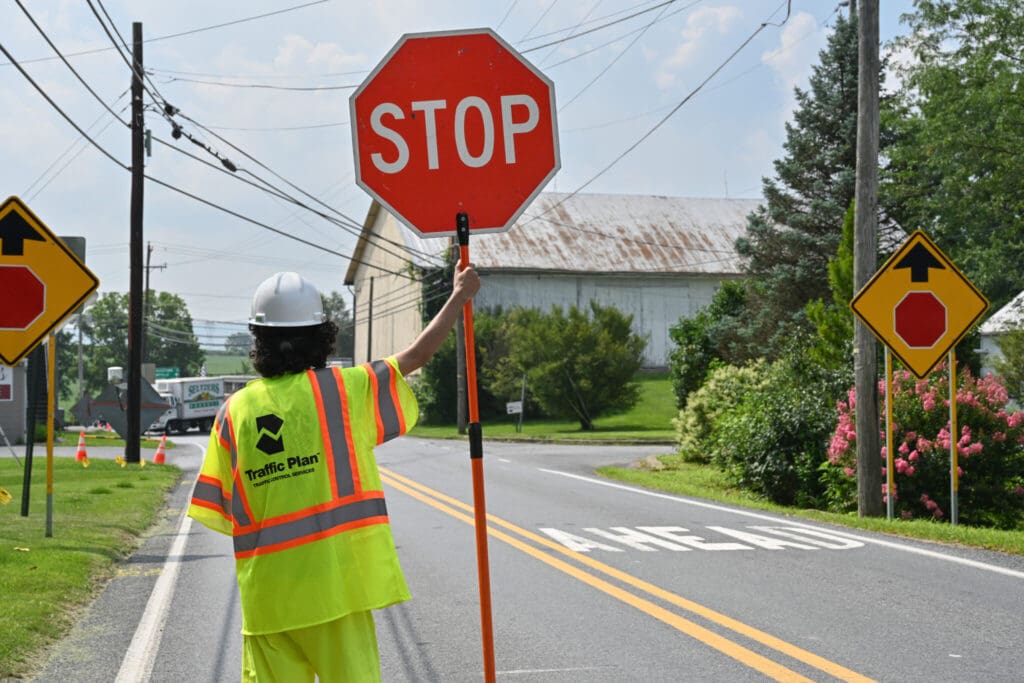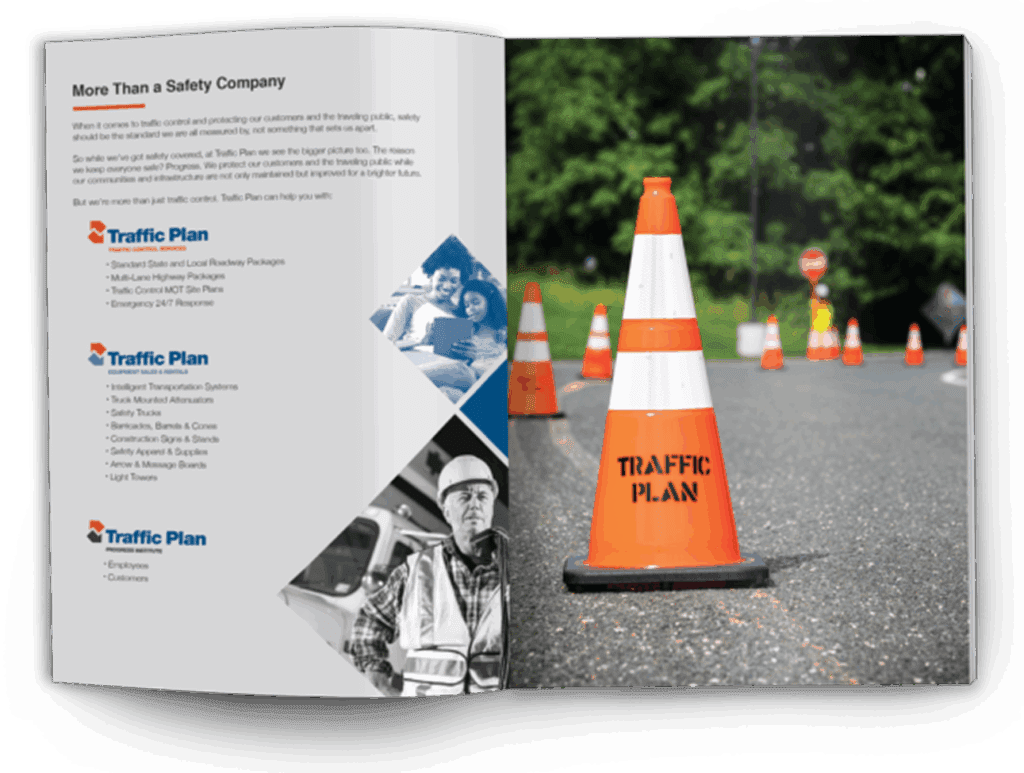At first glance, managing your own traffic control around your job site may seem economical and efficient. In reality, though, the risks and responsibilities of managing traffic demand a level of precision and protection best provided by trained professionals. From compliance challenges and legal liability risks to hidden costs and workflow disruptions, this post explores why traffic control should be outsourced to dedicated experts and not be the responsibility of your internal crew.
1. Legal Liability & Compliance Risks
Navigating federal, state, and local regulations can be a maze of potential infractions. Something seemingly minor, like placing a sign too far from a work zone or mispositioning a flagger can violate code, leading to fines, project delays, or even shutdowns. Professional traffic control companies specialize in knowing and complying with regulations, staying up to date on standards, and maintaining the certifications necessary to operate legally and safely.
2. Insurance & Liability Protection
If an incident occurs due to poor traffic management and your internal team is to blame, your business bears the full burden of the legal and financial fallout. Lawsuits and medical claims will likely follow, as will rising insurance premiums. Traffic control companies carry their own specialized insurance policies, meaning the risk is transferred away from your organization.
3. Distraction from Core Work
Your team’s job is to build, repair, or renovate — not to coordinate lane closures, detour signage, and flagging logistics. Asking in-house crews to manage traffic pulls their attention from the task at hand, which can slow productivity and lead to errors on the job site that affect timelines and safety. Offloading traffic responsibilities to a professional crew allows your workers to do what they do best without splitting their focus or adding unnecessary stress.
4. Specialized Training & Equipment
Effective traffic control is more complicated than simply dropping cones and turning signs. It requires deep knowledge of traffic flow, safety protocols, emergency procedures, and how to handle site-specific challenges. Additionally, professional traffic control companies are equipped with advanced tools — like digital signage, radios, and intelligent traffic systems — that streamline operations. In-house teams often lack both the training and equipment needed to maintain professional standards. As a result, they’re more vulnerable to inefficiencies and accidents.
5. Cost Inefficiencies
Hidden expenses involving traffic management add up fast, especially when you factor in training, PPE, signage, planning, and possible fines for noncompliance. Professional traffic control companies offer clear, upfront pricing. By outsourcing, you gain budget predictability and peace of mind, without surprise expenses.
6. Public Safety & Reputation
Ultimately, your company’s reputation is shaped by how well you run a job site, both inside and outside the fence. Badly managed traffic frustrates the public, endangers pedestrians and drivers, and reflects poorly on your brand. Ensure smooth traffic flow, safe access for emergency vehicles, and clear communication with the public by engaging experienced traffic control providers.
Leave It to the Experts
Traffic control is no place to cut corners. The legalities, safety demands, and operational distractions make it a role best handled by professionals. Partnering with experts like Traffic Plan lets your team focus on their core work while staying safe, compliant, and efficient.
Contact Traffic Plan when planning your next project. Or, call for 24/7 emergency help — we get to your work zone quickly to manage it professionally, day or night.


